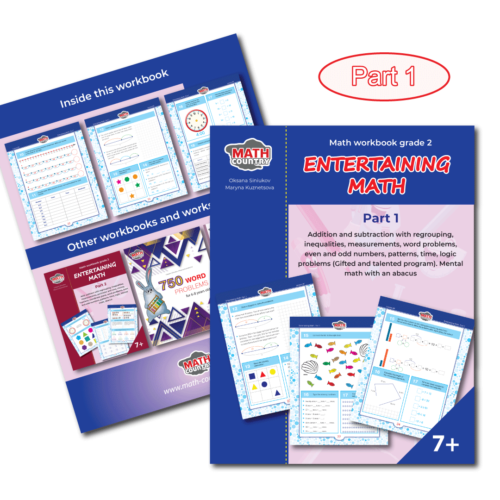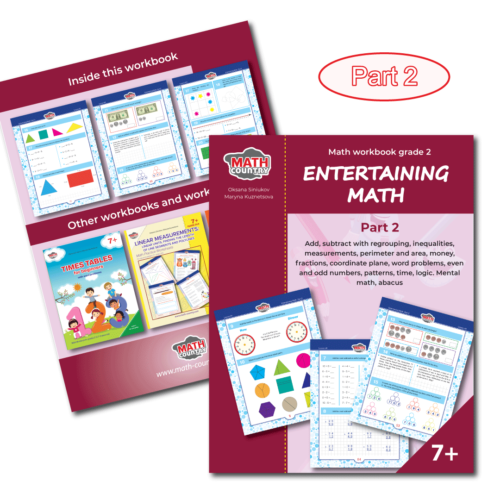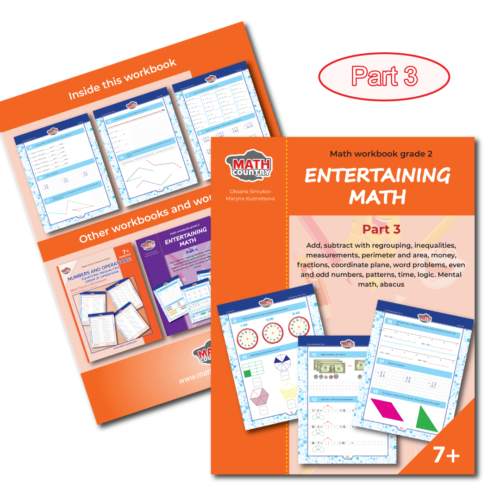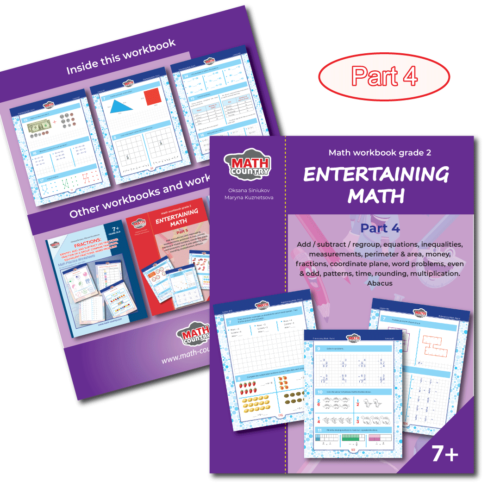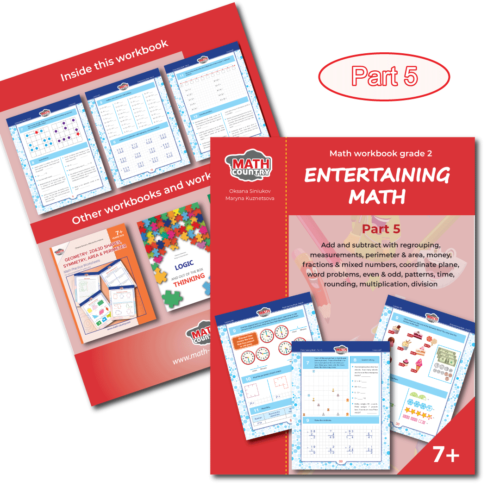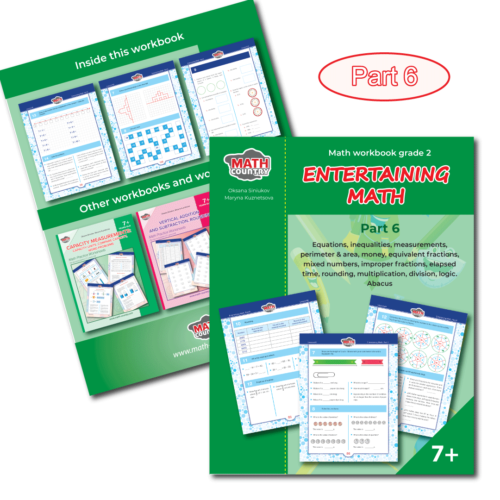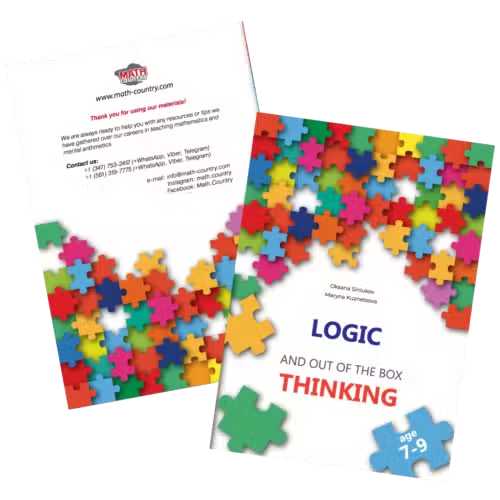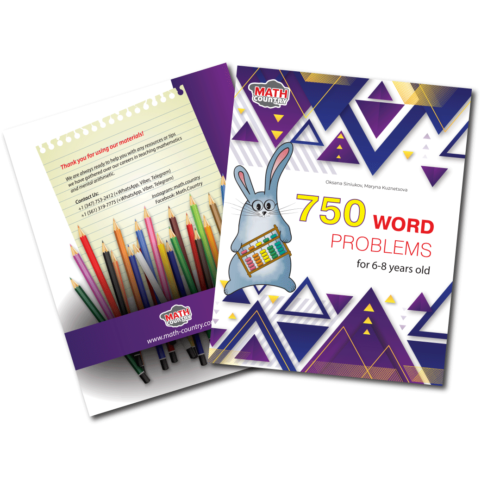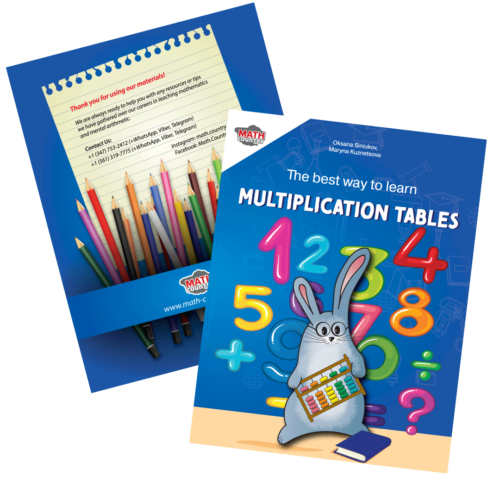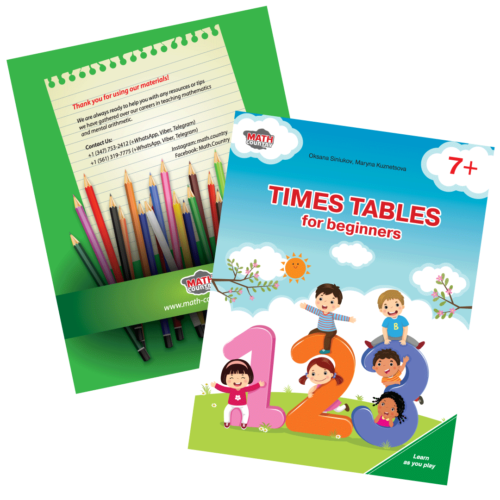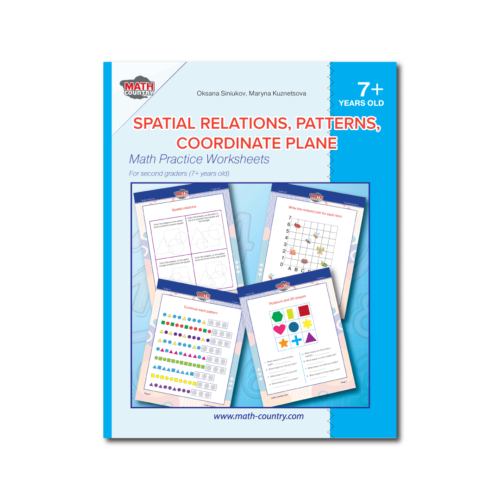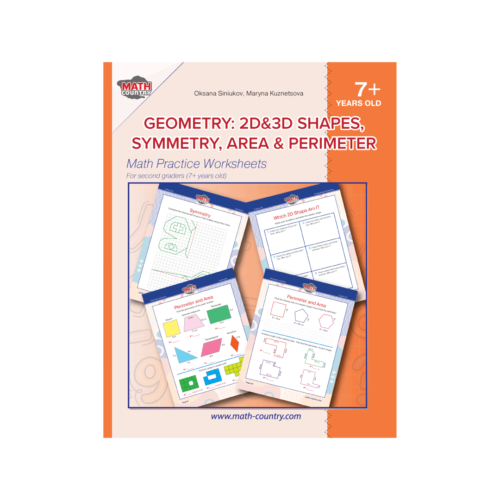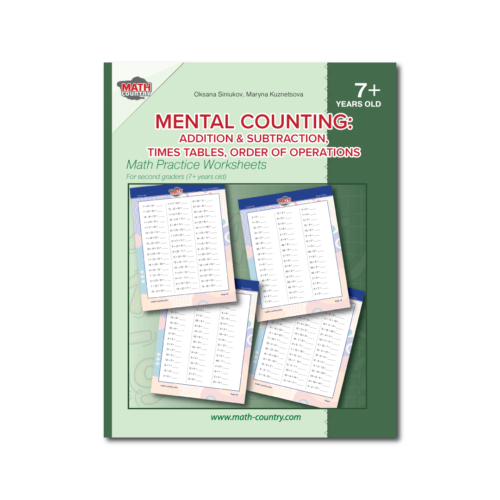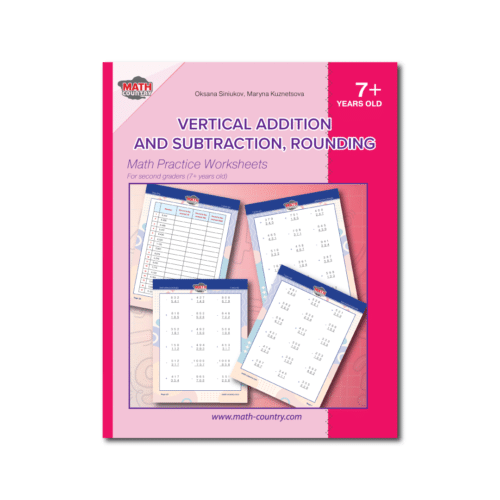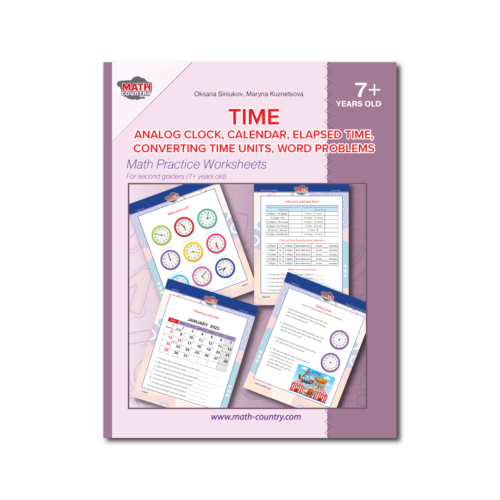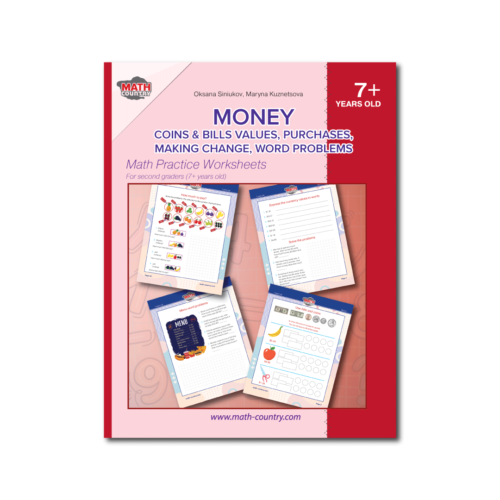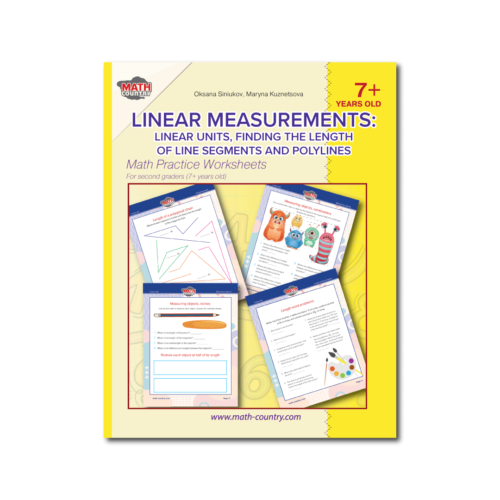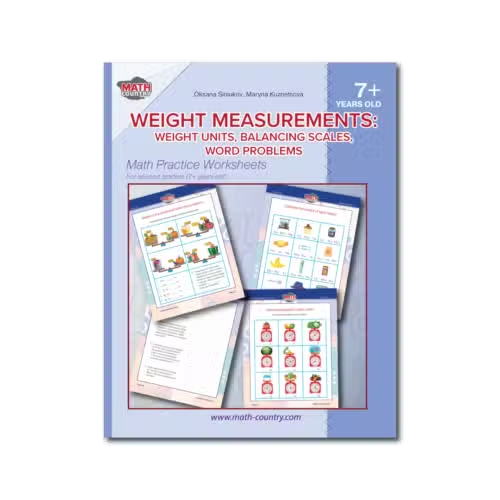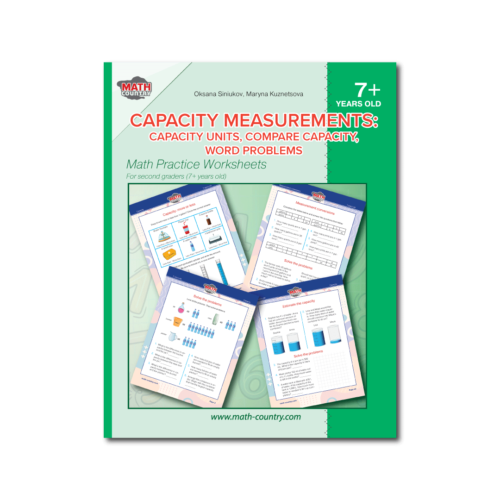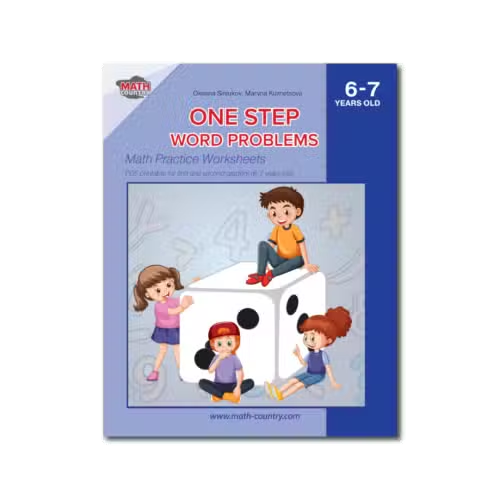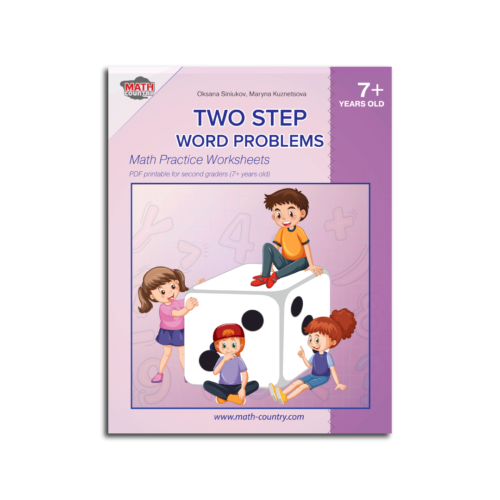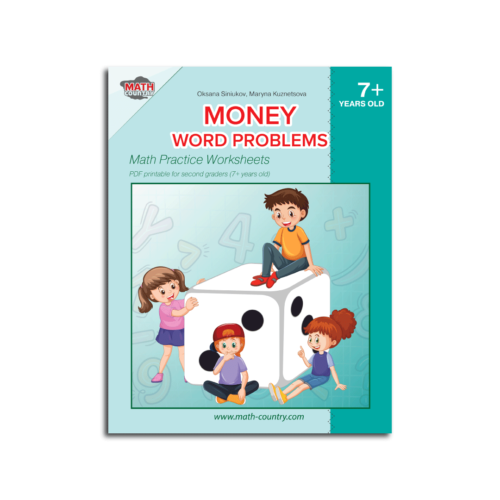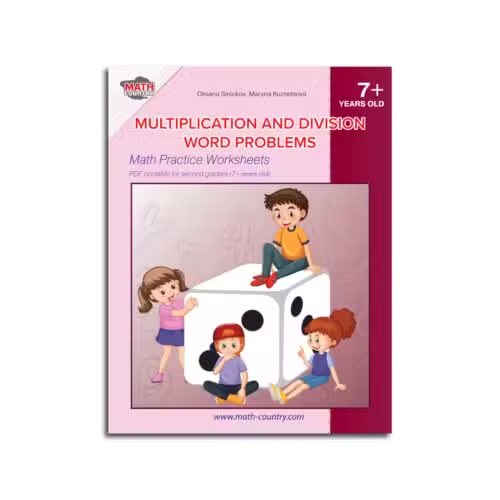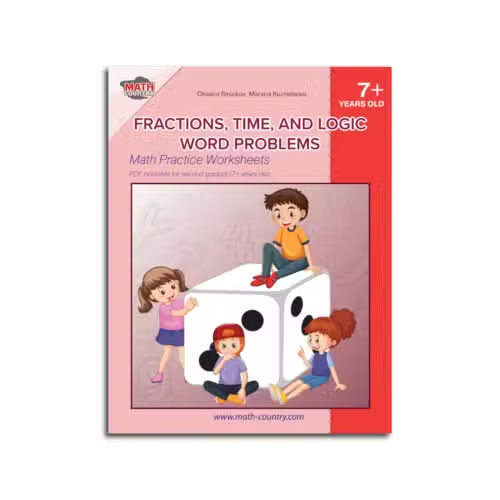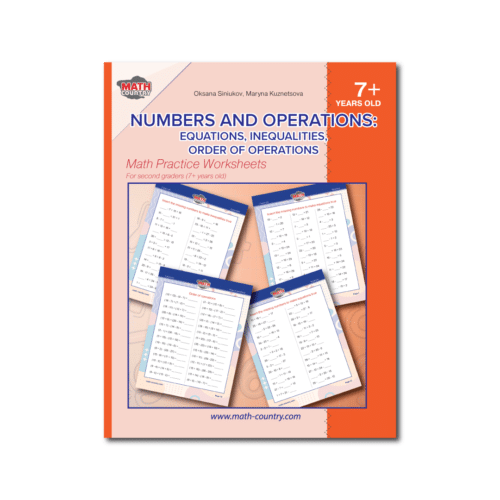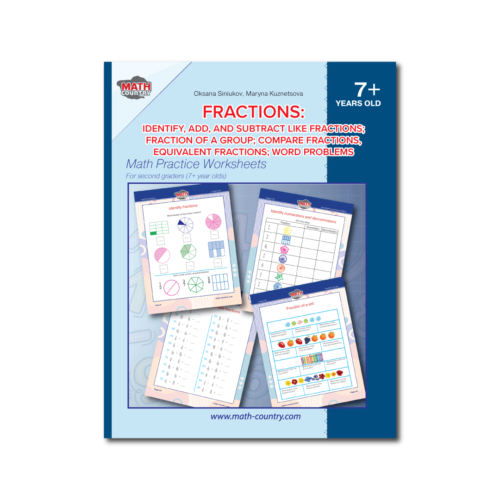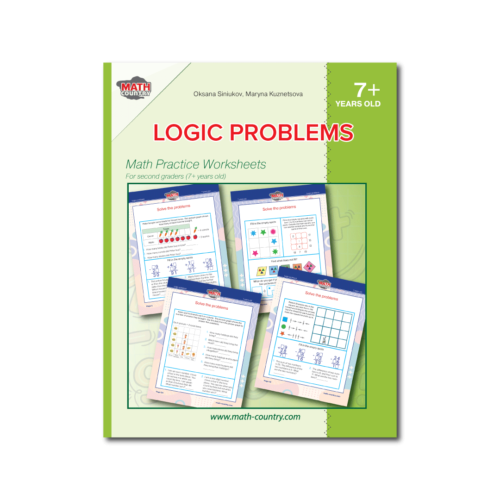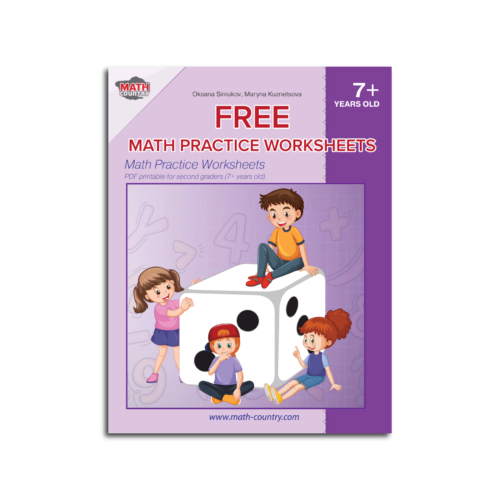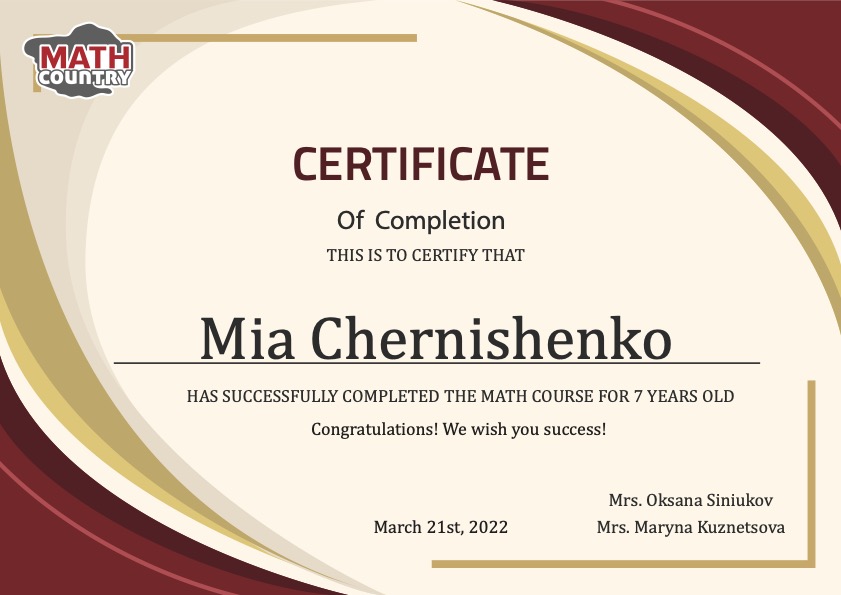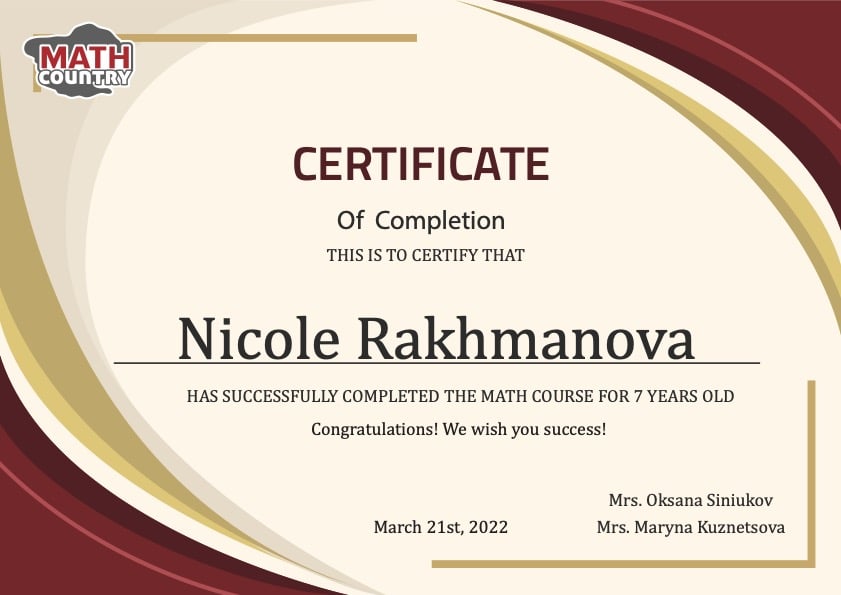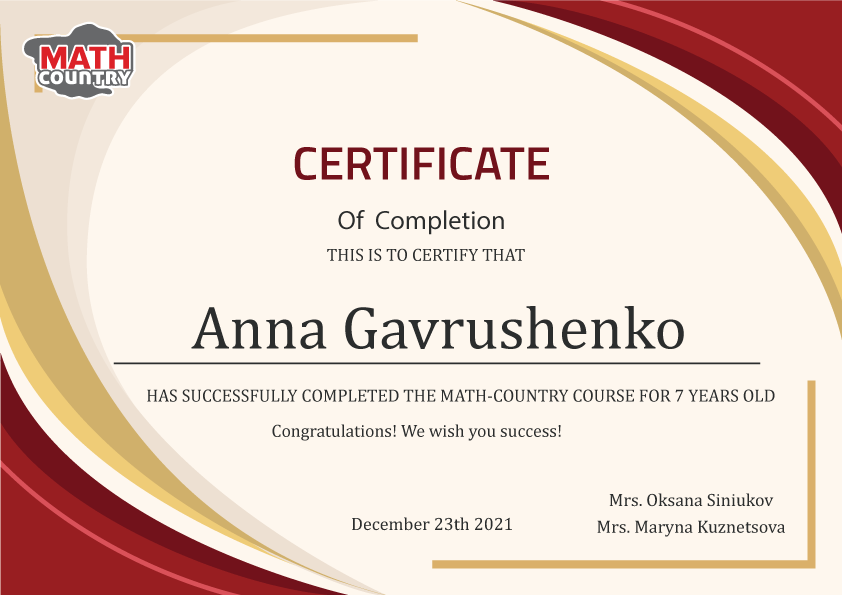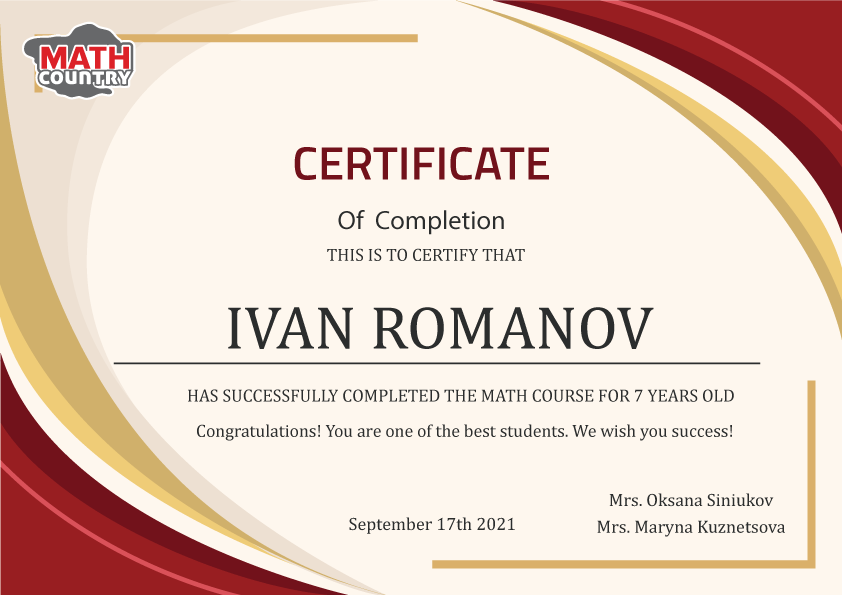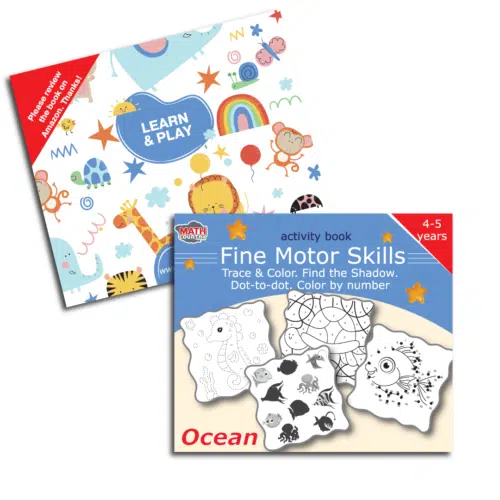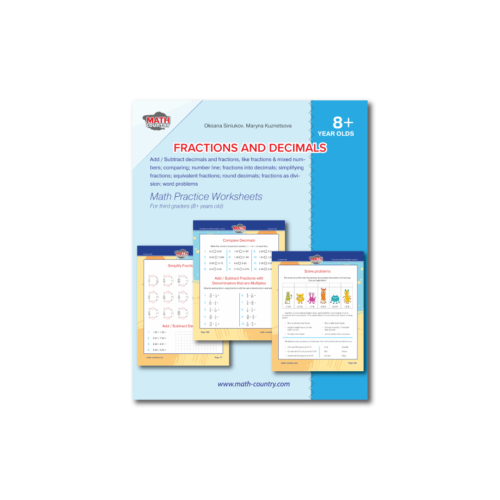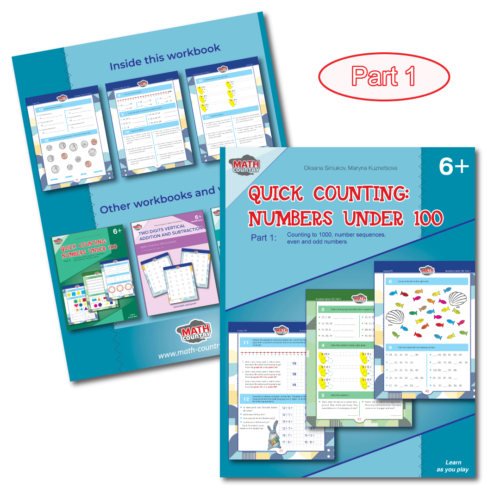Topic-related math worksheets for Grade 2 (age 7+)
These topic-targeted worksheets are extremely helpful in addition to the main series “Entertaining Math”.
You can use them together with any part of the “Entertaining Math” series or separately to improve the child’s skills in the chosen topic.
Also, these targeted worksheets help repeat and consolidate acquired skills after the child finishes the main book series and prepare them for a smooth transition to the next level.

With the help of our workbooks «Entertaining Math 7+,» your kids quickly learn the technique for fast counting, learn to solve word problems and inequalities and learn to find the length of segments of a line.
Math Country
Entertaining Math (7+ y.o.)
Entertaining Math (7+ y.o.)
The German mathematician Carl Friedrich Gauss referred to mathematics as “the Queen of the Sciences.” Today mathematics is a component of almost any activity: logical thinking, quick-counting skills, ability to find areas, volumes, or a speed of an object are valuable skills.
Math Country’s workbooks for 7-year-olds provide all the necessary materials for learning or teaching these skills. No matter who you are – a parent, a teacher, a student, or a visitor – we are sure you can find the materials that fit your needs.
Bright, colorful notebooks make learning not only productive but also enjoyable.
Math Workbooks for 2nd graders (age 7+)
This is a fantastic resource for 2nd-grade math lesson plans. We’ve done all the legwork, organizing all the exercises and problems into lessons with the following homework. All you need to do is follow the straightforward instructions, which will give you the confidence to implement these lessons effectively.
Classical series of workbooks in six parts.
Overall, the “Entertaining Math” workbooks provide an excellent resource for educators and parents who want to guide children through a structured and proven math curriculum step-by-step.
For educators and parents who prefer a more traditional approach to teaching math, the “Entertaining Math” workbooks offer a comprehensive curriculum designed specifically for 7-year-olds. The series covers all essential counting topics at this age level, with each workbook divided into individual lessons accompanied by corresponding homework assignments.
The workbooks are structured to gradually increase in difficulty, starting with the most basic concepts and building upon them as the child progresses. This approach allows children to develop their math skills incrementally without feeling overwhelmed or frustrated by overly complex material.
In addition, a logically thinking person operates with clear terms, constructions, and concepts. He does not engage in self-deception and understands the causal relationship of what is happening. People tend to confuse causes and effects in places; a person with impeccable logic does not have such incidents.
We highly recommend including these workbooks in the educational process.
